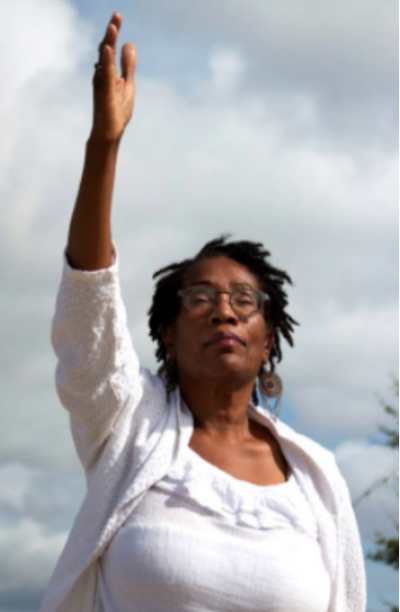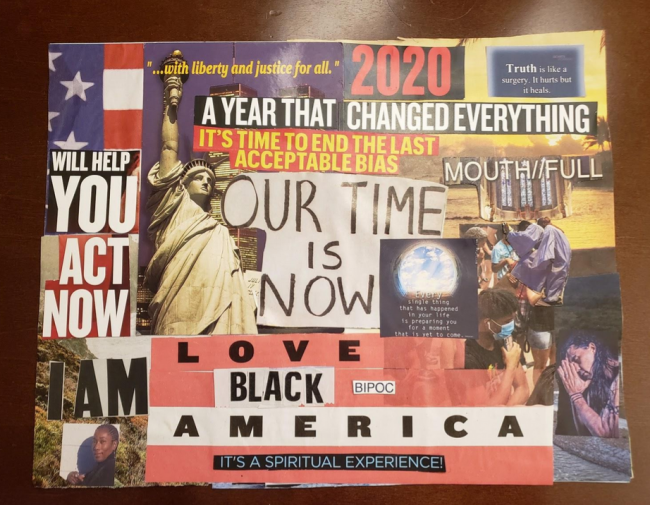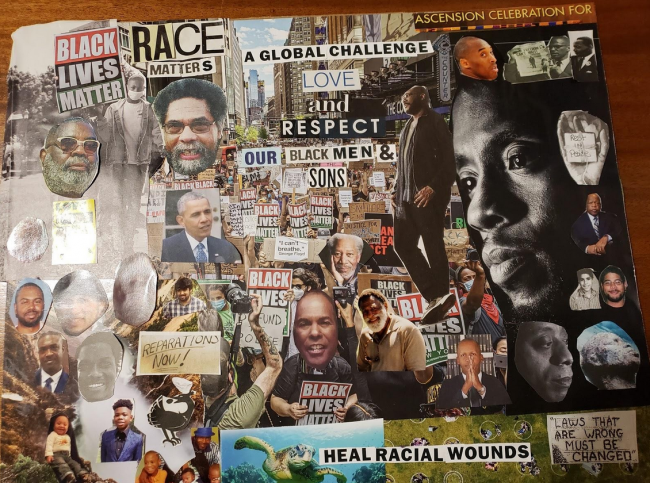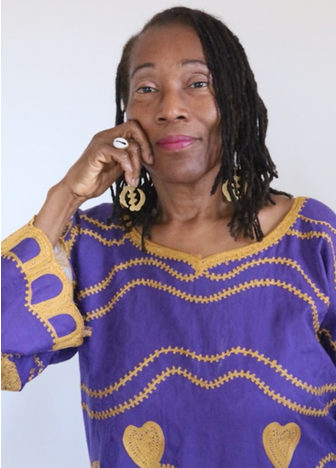Celebrating Black History Month
By Mutima Imani
The time is always right to do what is right.
— Martin Luther King Jr.
 Black History Month is here again. Celebrate Black brilliance!
Black History Month is here again. Celebrate Black brilliance!
In 2020 between May 25 and June 10, when people all over the world were out in the streets shouting “Black Lives Matter,” “I Can’t Breathe,” and “Enough is Enough,” you did your part. You marched and donated money to a Black organization, you wrote a statement of solidarity, and even hired a Diversity and Inclusion Consultant.
Maybe you talked to your Black neighbors for the first time, invited them over for tea, said you were sorry to these members of the global majority for not understanding how hard it can be for them to show up in white spaces and be treated with disrespect.
Last year for Black History Month, I wrote an article about how to create a paradigm shift in consciousness by talking about the fear of blackness. I talked about the negativity that’s associated with the word black, the color black, the centuries of the unconscious and conscious negative messages that are the root cause of the mistreatment of black people.
Some of you went there with me, finishing the sentences, “Black Men are...” “Black Women are...” “Black boys are...” “Black girls are...” I got your letters saying that you were embarrassed and surprised to discover that you have negative images in your mind about Black people.
Only in the darkness can you see the stars.
— Martin Luther King Jr.

When we think of Black Lives Matter, we think of kneeling — both in George Floyd’s murder and in Colin Kaepernick protesting against police brutality. To read more about the ironic juxtaposition of two men kneeling, click here.
Professor Ibram X. Kendi wrote about The American Nightmare for The Atlantic: “A nightmare is essentially a horror story of danger, but it is not wholly a horror story. Black people experience joy, love, peace, safety. But as in any horror story, those unforgettable moments of toil, terror, and trauma have made danger essential to the black experience in racist America. What one Black American experiences, many Black Americans experience. Black Americans are constantly stepping into the toil and terror and trauma of other black Americans. Black Americans are constantly stepping into the souls of the dead. Because they know: They could have been them; they are them. Because they know it is dangerous to be Black in America, because racist Americans see Blacks as dangerous." To read more, click here.
I said we are being called to come together to heal the past and correct the problems of disparity and injustices that have created conditions that have compromised the safety and wellbeing of Black lives. And today I am saying we are being called to come together to correct the conditions that would have people storm the Capitol.
Where are you now?
2020 was a year that changed everything. It's time to end the last acceptable bias. Our time is now! Will you help? Here’s a global challenge: love and respect our Black men and sons.

 Mutima Imani is a social justice visionary, master trainer, and facilitator working to heal the heart of humanity by providing 21st-century tools for personal and professional development and transformation. She is a global diversity specialist who understands and inspires people to think locally while planning globally. Highly skilled at bringing diverse groups together to resolve conflicts, Mutima conducts Civic Leadership training and Restorative Justice Circles. She has a master’s degree in Public Administration with an emphasis in Phenomenology. Mutima is passionate about how all things work together and what humans can learn from the natural world.
Mutima Imani is a social justice visionary, master trainer, and facilitator working to heal the heart of humanity by providing 21st-century tools for personal and professional development and transformation. She is a global diversity specialist who understands and inspires people to think locally while planning globally. Highly skilled at bringing diverse groups together to resolve conflicts, Mutima conducts Civic Leadership training and Restorative Justice Circles. She has a master’s degree in Public Administration with an emphasis in Phenomenology. Mutima is passionate about how all things work together and what humans can learn from the natural world.
Click here to visit Mutima’s website.
Catalyst is produced by The Shift Network to feature inspiring stories and provide information to help shift consciousness and take practical action. To receive Catalyst twice a month, sign up here.
This article appears in: 2021 Catalyst, Issue 3: Ancestral Healing Summit & Black History Month



